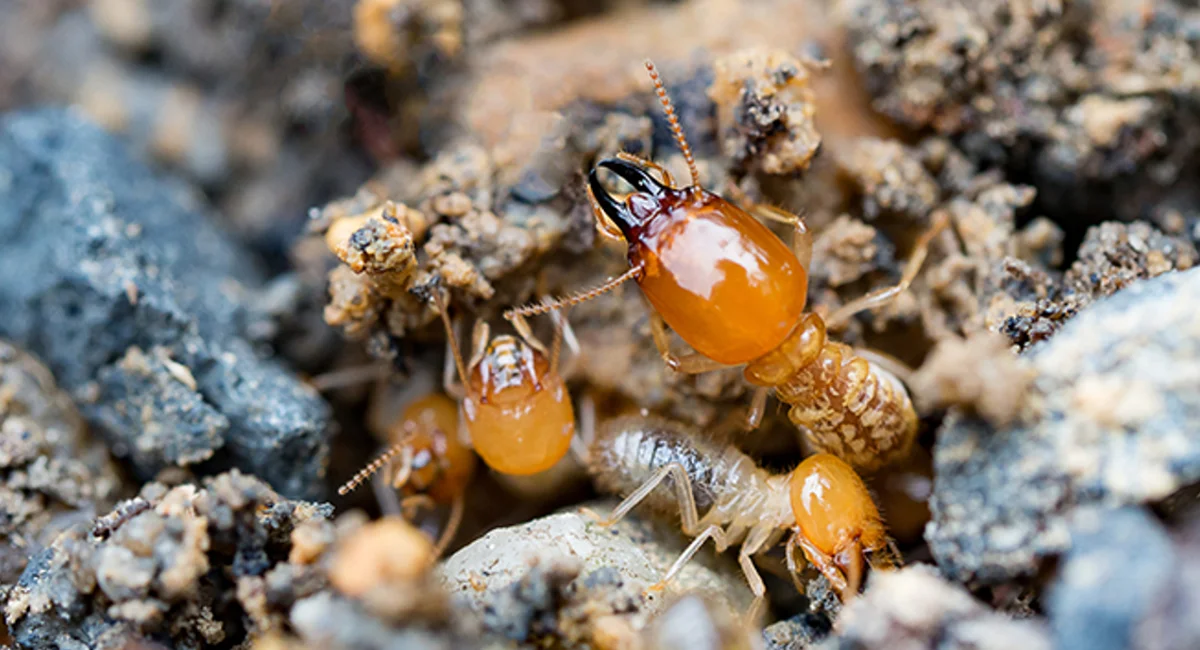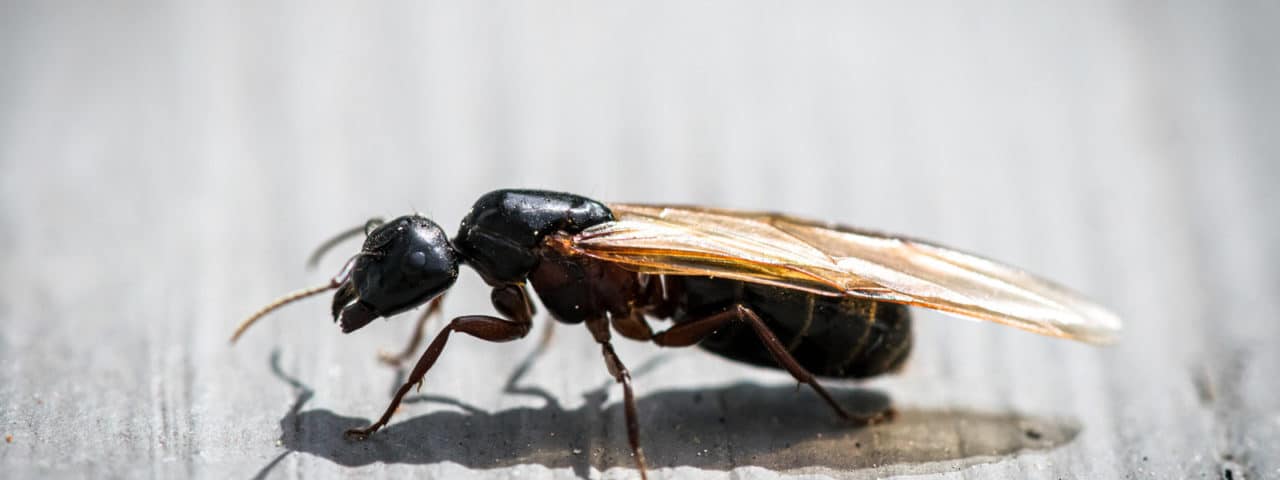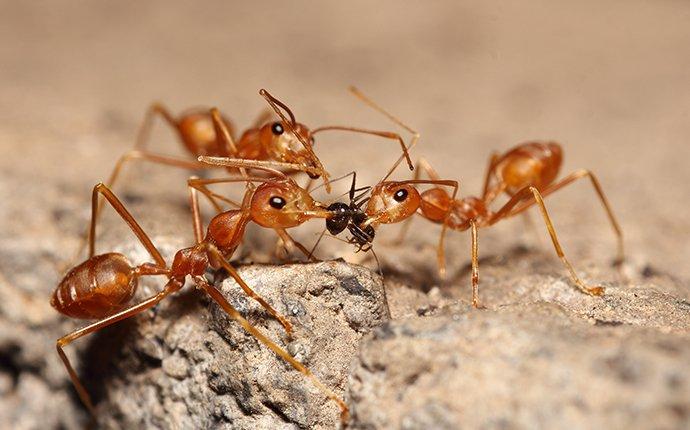Efficient Ant Control: Professional Services to Get Rid Of Ant Infestations
Wiki Article
Ecological Influence of Bug Control: Balancing Performance With Sustainability
The ecological impact of bug control is an important concern that calls for a delicate balance between accomplishing performance in managing pests and making sure sustainability of our ecosystems. From the use of damaging chemicals that leak into our dirt and water to the unplanned effects on non-target varieties, the effects of traditional bug control techniques are significant.Dangerous Chemicals in Bug Control
The usage of dangerous chemicals in parasite control postures substantial ecological and health and wellness dangers that call for cautious consideration and mitigation techniques. Chemicals, pesticides, and herbicides are commonly made use of to get rid of parasites, yet their extensive application can cause unplanned effects. These chemicals can contaminate soil, water resources, and the air, impacting not only the targeted pests yet additionally useful bugs, wildlife, and humans.
To attend to these dangers, integrated bug administration (IPM) methods are being promoted as a more sustainable alternative. IPM entails a combination of approaches such as organic control, habitat control, and the targeted use pesticides as a last hope (ant control monroe nc). By adopting a holistic technique to pest control, we can lessen the environmental and wellness effects connected with damaging chemicals while effectively taking care of pest populations
Impact on Non-Target Variety
Thinking about the unintended effects of parasite control techniques, the influence on non-target varieties is a critical element that requires comprehensive assessment. While parasite control procedures aim to target details insects, various other microorganisms in the community might be unintentionally affected. Non-target types, including valuable bugs, birds, mammals, and even plants, can endure direct or indirect injury from chemical applications or organic control approaches.Pesticides made to combat a particular insect bug may hurt pollinators like bees or natural predators such as ladybugs. Biological control agents, if not species-specific, can present dangers to unexpected targets, interrupting the environmental equilibrium.
To reduce the influence on non-target species, integrated pest management (IPM) techniques that highlight an all natural technique to pest control are suggested. These methods prioritize using eco-friendly techniques, minimizing injury to useful microorganisms while efficiently managing pest populaces. Performing detailed danger evaluations and checking the results of insect control efforts are essential action in guarding non-target types and promoting overall ecological community wellness.
Soil and Water Contamination
Unintended ecological consequences of pest control approaches expand beyond impacting non-target varieties, with significant implications for dirt and water contamination. Pesticides, herbicides, and chemical plant foods made use of in parasite control can seep right into the dirt and pollute groundwater, presenting a risk to both terrestrial and water ecological communities. Dirt contamination can interrupt the equilibrium of bacteria important for nutrient biking and plant growth, causing decreased dirt fertility and efficiency. These chemicals can continue in the setting for extended durations, accumulating in the soil and possibly entering the food chain.Water contamination is one more vital problem associated with pest control practices. To mitigate soil and water contamination from bug visit this web-site control tasks, integrated pest monitoring methods that focus on sustainability and reduce chemical inputs are important.
Air Contamination From Pesticide Usage
Direct exposure to air-borne pesticides during farming applications presents a significant concern for air contamination control measures. They can volatilize into the air and kind unstable organic substances (VOCs) and other air-borne pollutants when chemicals are sprayed onto plants - ant control services. These chemicals can contribute to the development of ground-level ozone, a major part of smoke that can have destructive impacts on human health and wellness, plant efficiency, and total air high quality. Additionally, chemical drift, where pesticides are brought by the wind to unintentional locations, can result in the contamination of neighboring communities and water bodies.
Strategies for Sustainable Insect Control
In the realm of farming techniques, implementing sustainable insect control approaches is extremely important for maintaining ecological balance and protecting crop yields. Sustainable pest control emphasizes the use of ecologically pleasant techniques to handle parasite populations effectively while reducing harm to non-target organisms and environments. Integrated Bug Administration (IPM) is an extensively taken on strategy that incorporates organic, cultural, physical, and chemical control techniques to accomplish lasting pest management solutions.One key approach in lasting bug control is promoting biodiversity within agroecosystems. By improving natural enemies of insects, such as parasitoids and predators, farmers can decrease the need for artificial chemicals. Crop rotation and diversity are also effective strategies to interrupt pest life cycles and create much less desirable problems for bugs to flourish. In addition, using pest-resistant plant ranges and employing strategies like trap cropping can help in reducing parasite stress without counting greatly on chemical treatments. Eventually, by incorporating these lasting pest control strategies, farmers can attain a balance in between pest administration effectiveness and ecological stewardship.
Final Thought
Finally, the environmental influence of pest control methods need to be carefully taken into consideration to balance efficiency with sustainability. Damaging chemicals made use of in pest control can result in dirt and water contamination, air pollution, and damage non-target types - ant control. It is vital to apply sustainable pest control techniques to decrease these adverse effects on the environment and promote a much healthier ecological community for future generationsBy adopting an all natural approach to pest control, we can reduce the environmental and health and wellness influences linked with harmful chemicals while efficiently managing pest populations.

To alleviate the air pollution triggered by chemical use, it is crucial to embrace incorporated insect administration strategies that prioritize the usage of non-chemical pest control techniques, such as plant rotation, natural killers, and immune plant varieties. Sustainable parasite control emphasizes the use of eco pleasant methods to handle bug populations properly while decreasing damage to non-target microorganisms and communities. Integrated Parasite Monitoring (IPM) is a widely adopted method that incorporates organic, social, physical, and chemical control methods to achieve long-lasting bug monitoring remedies.
Report this wiki page